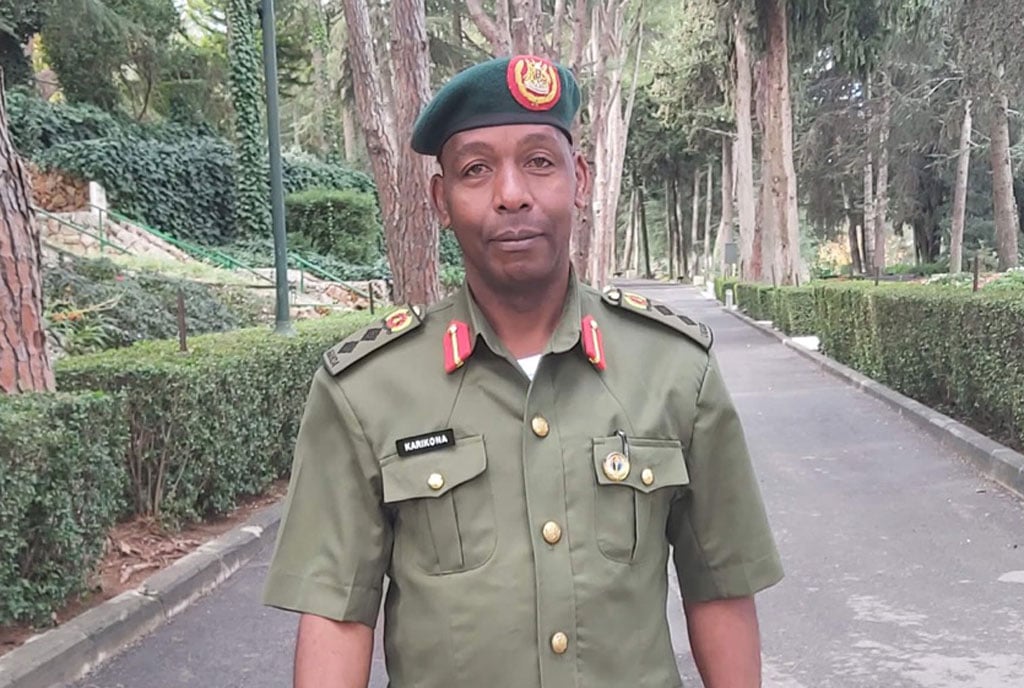Prime
Ggoobi lauds media, calls for ethical journalism

Permanent Secretary and Secretary to the Treasury Ramathan Ggoobi. PHOTO/FILE/COURTESY
What you need to know:
- Mr Ramathan Ggoobi, the Permanent Secretary and Secretary to the Treasury, spoke during the 10th Uganda National Journalism Awards 2024 organised by the African Centre for Media Excellence in Kampala on July 31.
The executive director [of ] African Centre for Media Excellence, all invited guests, the media fraternity, ladies and gentlemen, good evening.
I am happy to be here. Thank you for inviting me. Congratulations to all the Media practitioners under the various categories for demonstrating competence in journalism practice.
Let me start by reminding all of us that government was created to “Promote the common good” – placing the needs of people as a community above individual liberty and self-determination.
Thomas Jefferson, said, way back in 1787, “Were it left to me to decide whether we should have a government without newspapers, or newspapers without the government, I should not hesitate a moment to prefer the latter.”
Why, because government without media is chaos. We need media to render accounts for the resources given to it by the citizens (money and human beings). The media are the main channel of communication with the public.
Effective communication through media is key to government success. Media works as the “fourth estate” in government.
You put forward viewpoints and opinions and expose abuses. You also play an important role in political debates and decide which issues make the news. Thus, in an ideal world, media and the State should be friends not adversaries.
Problem? Free press does not guarantee fair/accurate reporting. They pursue what is not in the public interest, but in the interest of the journalists or a minority.
At times some media practitioners turn opinion of the vocal minority into public opinion.
George Bernard Shaw, said, way back in the 19th Century, “Newspapers are unable, seemingly, to discriminate between a bicycle accident and the collapse of civilisation.”
Noam Chomsky said, “The media typically have their own interest in determining which issues to raise in the public mind.”
Yet the Africa State has begun a profound transformation in which citizens are becoming more educated, more informed, and are demanding rights to exercise control over the institutions that once controlled them.
We really need to ask ourselves; are we still adhering to the “Principles of Media Ethics”?
• Truth and Accuracy – are we effectively cross-checking facts?
• Independence – are we avoiding acting on behalf of special interests?
• Fairness and Impartiality – are our stories balanced? Is the “Fairness Doctrine” still adhered to, or it has turned into a myth?
• Humanity – are you taking trouble to minimize harm of your publications?
• Accountability – are we correcting the errors in sincere (not cynical) ways?
I want you to know that some of us in government acknowledge the critical role the media play in promoting nation building, economic development and accountability.
However, you need to deal with misinformation and outright abuse of the power you have. Particularly unedited/unregulated media. State of the Economy The economy has fully recovered from the various shocks, crises and false alarms.
Growth is good, and projected to get better, inflation remains contained within the target rate, despite recent slight increase on the account of food crop inflation, [and] the shilling has remained relatively stable despite depreciation pressures at the beginning of this year.
Interest rates have [also] remained broadly stable, albeit still higher than required, exports have increased to over $7.5b, up from $4.9b in 2023, [and] FDI inflow to Uganda increased to $2.9b last year, making Uganda the fourth top country in attracting FDI in Africa.
Government has been deliberate with its fiscal policy and monetary policy and we have been working in a coordinated manner with Bank of Uganda. These efforts have been supplemented by the relatively good weather and improving global economic conditions.
The growth atrategy
We have started implementing a Tenfold Growth Strategy. We aspire to grow the size of the economy to $500b by 2040 by leveraging the ATMS:
i. Agro-Industrialisation and light manufacturing. The target by FY 2039/2040 is $20b.
ii. Tourism development. Target is $50b.
iii. Mineral-based manufacturing including and petroleum products. The target is $25b.
iv. Science, Technology and Innovation (STI) including ICT. This is a multiplier anchor programme with a huge economywide impact.
So, what’s new? What do we want to do differently to achieve this good ambition? We want to:
1. Take full advantage of the new ways of doing things (emerging technologies), invest in new sources of growth (emerging sectors), and leverage the new trade and economic relationships (emerging markets).
We are going to:
1. Clean-Up: By fully implementing and enforcing the existing laws and regulations.
2. Team-Up: Focus all stakeholders on one goal and use a phased approach to addressing the implementation gaps.
3. Skill-Up: Arrest the declining trend in labour productivity and mainstream manpower planning.
4. Green-Up: Preserve and grow environmental assets
5. Link-Up: Develop and deepen regional value chains and crossborder infrastructure connectivity for market access and penetration.
The key priorities for the budget during FY 2024/2025 include among others;
i. Investing in the people of Uganda through health, education, provision of clean water for human consumption and for production; and for social protection.
ii. Peace and security (of life and property) for all the people of Uganda
iii. Road maintenance, bridges, rehabilitation of the Meter Gauge Railway and construction of the Standard Gauge Railway and water transport.
iv. The knowledge economy: research and development.
v. Value addition, by leveraging on the existing infrastructure
vi. Wealth creation initiatives like PDM, Emyooga, ACF, Microfinance Support Center etc.
vii. Management of natural disasters, and regional and international commitments.
Engage with the MoFPED as a trusted source on information about the economy.
We commend media for exposing corruption. As H.E promised you, the fight against corruption is on.
I want to thank the ACME for not only organising these awards but also continuously improving the media landscape in the country.
I once again congratulate all the winners tonight and urge you to continue practicing responsible journalism in the quest to build a better country for all of us.




